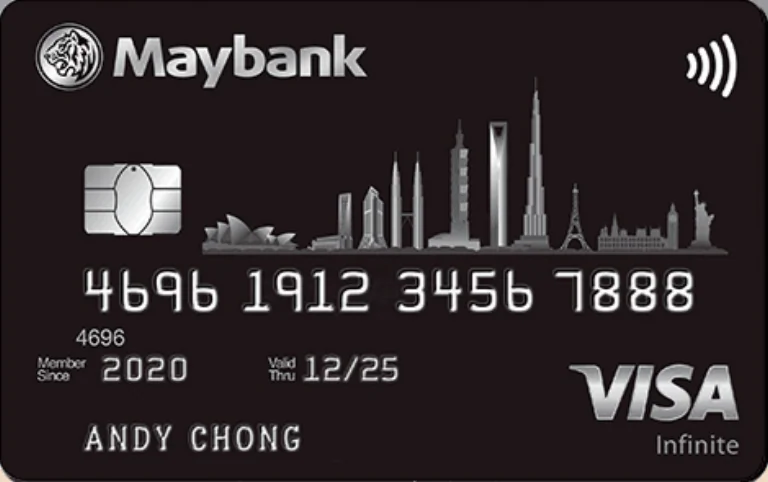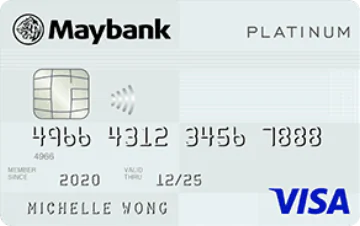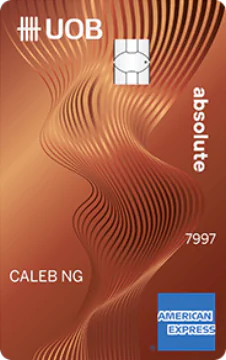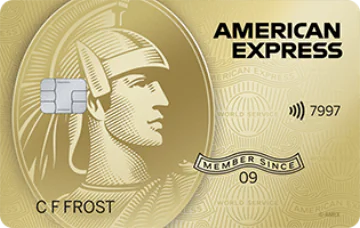Best Credit Cards For Insurance Payments in Singapore (2025)
Updated: 25 Aug 2025
Get protected and rewarded at the same time, by designating these credit cards to your recurring insurance premium payments.
Written bySingSaver Team
Team

Perhaps the best-loved features of credit cards are the rewards they provide as you use them to pay for your everyday expenses. In many cases, the more you spend on your credit card, the more rewards you can enjoy.
However, not all transactions are eligible for rewards — case in point: insurance premiums. Many credit card issuers do not recognise payments made to insurance providers as eligible for rewards. That is a pity, considering that insurance premiums are usually regular and long-term in nature – which makes them ideal for stacking up credit card rewards!
But all is not lost. Some credit cards regard insurance premium payments as eligible transactions, letting you earn rewards. And even if you don’t have any of these cards, there are still ways you can continue to earn rewards as per usual.
Why do some credit cards not give you rewards on insurance premium payments?
Credit card rewards are only given on what the card issuer regards as “eligible transactions”, which are determined via what’s known as the Merchant Category Code (MCC). This four-digit number serves as a universal identifier for what category of business the merchant is in, and every transaction made on your credit card is tagged to the relevant MCC.
Insurers usually carry MCC 5960 (direct marketing insurance services) or MCC 6300 (insurance sales and underwriting), which many card issuers exclude from their reward programmes.
Since credit cards only provide rewards on transactions that fall under the pre-qualified MCCs, those that exclude MCCs 5980 or 6300 will naturally disregard your premium payments for rewards.
Best credit cards for insurance premium payments in Singapore
|
Credit card |
Benefits |
|
American Express True Cashback Card |
Unlimited 1.5% cashback on all spend, no minimum spend |
|
Maybank Platinum Visa Card |
3.33% cashback |
|
UOB Absolute Cashback Card |
Unlimited 1.7% cashback on all spend, no minimum spend |
|
Maybank Visa Infinite Card |
1.2 miles per dollar |
American Express True Cashback Card
There are cashback cards, and then there are unlimited cashback cards. The latter is best for individuals who want a fuss-free credit card with very few limitations or category exclusions, such as paying for insurance premiums.
The Amex True Cashback Card was the first credit card to bring the concept of unlimited cashback to credit card users in Singapore. It offers a flat 1.5% unlimited cashback on a much wider range of eligible transactions, and does not require any minimum monthly spend to earn cashback. There is also no limit to how much cashback you can earn.
Naturally, it is among the best candidates for earning cashback rewards on your insurance premium payments. 1.5% may not seem like much, but it surely adds up over the course of, say, your 20-year endowment plan!
Maybank Platinum Visa Signature Card
The Maybank Platinum Visa Signature Card offers quarterly cashback equivalent to 3.33% per annum, based on how much you spend in the preceding three months.
Here’s how it works:
- Get S$30 cashback for minimum monthly spend of S$300 in the quarter
- Get S$100 cashback for minimum monthly spend of S$1,000 in the quarter
- Get S$200 cashback for minimum monthly spend of S$2,000 in the quarter
Thus, you can earn a maximum of S$800 cashback for the year, if you spend more than S$2,000 per month every month.
The good news is, your insurance premiums can contribute towards the required minimum monthly spends. The not-so-good news is, only 50% of the value of your premium payments are counted.
This means that if your monthly premiums are S$500, only S$250 will be counted for the month, and you’ll need to spend another S$50 to hit the S$300 minimum monthly spend. And you’ll have to do this for every month in the quarter (Maybank defines calendar quarters as: January to March, April to June, July to September and October to December) to qualify for cashback.
But still, 50% is better than 0%, and if you’ve been happily using this credit card all along, you can charge your insurance premiums to it to bump you up a tier for more cashback every quarter.
UOB Absolute Cashback Card
Another credit card that gives you unlimited cashback is the UOB Absolute Cashback Card. It offers an even higher cashback rate of 1.7%, and acknowledges insurance payments as eligible transactions.
There is no cap on how much cashback you can earn with this card, and there are also no spend exclusions. Besides your insurance premiums, you should also pay for your big-ticket purchases such as furniture and appliances using this card to benefit from more cashback.
Naturally, this 1.7% cashback applies to insurance premiums too, but before you swap out your current payment arrangement with this card, there's something to take note of. Not all insurers accept American Express credit cards as a form of payment and it's not certain whether they'll begin to do so. At this point in time, the only insurers doing so are AXA and AIA.
Furthermore, it's likely that insurers only accept both American Express and Visa credit cards for either new applications or when you're adding a rider onto your existing policy.
Maybank Visa Infinite Card
The final entry on our list of credit cards that give you rewards on your insurance premiums is none other than the Maybank Visa Infinite Card.
True to its premium credit card status, this card gives you 3x TREATS points (or 1.2 miles per dollar), up to S$3,000 worth of insurance payments every month.
This means you can earn up to 3,600 miles per month on your insurance payments – on top of however many miles you can generate from your other transactions.
Not too shabby, provided you can satisfy the stiff eligibility requirements of S$120,000 in annual income.
Other ways to earn rewards on insurance premium payments
Alternatively, you can pay your insurance payments using a third-party payment service to continue earning your credit card rewards.
However, this involves paying a service fee, as well as running the risk that your bank may not recognise the transaction or offer a lowered reward rate. This varies by bank, so you’ll need to check directly with your card issuer if you consider taking this route.
Nonetheless, here are the third-party services you may use, as well as how much they charge.
|
Payment platform |
Service fee (per transaction) |
Eligible credit cards |
|
CardUp |
2.6%, or S$3.40 for amounts less than S$130 |
All Visa, Mastercard, Amex and UnionPay cards |
|
AXS Pay Any Bills |
2.6% |
Visa or Mastercard only Min. of S$300 per transaction |
|
Citi PayAll |
2.2% (fee option) |
Citi Rewards Card, Citi Cash Back Card, Citi Cash Back+ Card, Citi PremierMiles Card, Citi Prestige Card and Citi ULTIMA Card |
|
Standard Chartered EasyBill |
Up to 1.9% |
All Standard Chartered credit cards |
CardUp
CardUp is the most flexible payment service of the four, in the sense that you can use any Visa, Mastercard, UnionPay or Amex credit card issued in Singapore for your payments.
Most insurance providers are included on the platform, but even if yours isn’t, you can simply set them up as a new payee on CardUp to start making payments to them.
In exchange for the convenience, you will also be paying among the highest service fee of 2.6%, or a minimum of S$3.40 per transaction.
AXS Pay Any Bill
AXS Pay Any Bill allows you to use any Visa or Mastercard credit card to pay your insurance premiums, with a fee of 2.6% per transaction. In exchange, you will be able to earn credit card rewards with a credit card that does not usually recognise insurance premiums as eligible transactions.
Thus – and this goes no matter which of the four services you choose to use – you should only choose a credit card which would give you rewards that outstrips the admin fee. For instance, there’s no point paying with a cashback card that gives you 1.5% cashback, versus a 2.6% fee.
This almost always means you should look towards credit cards with high earn rates, such as air miles or rewards cards.
Citi PayAll
Citi PayAll is available in both no-fee and fee options, but only the latter would provide credit card rewards. Hence, that’s the version we’re focused on.
You’ll pay an admin charge of 2.2% per transaction for the availability to earn your usual credit card rewards. As explained earlier, this doesn’t always make for a good deal, as you will only earn the base reward rates; that means cards like the Citi Also, only Citi credit cards are eligible, which further narrows down your choices.
However, Citi PayAll is more attractive during promotions, such as the one currently ongoing. Pay at least S$8,000 through Citi PayAll within the promotion period to earn 1.8 miles per dollar, or 4.5 ThankYou points.
Note that this promo is valid till 29 Feb 2024 and only four cards are eligible – Citi ULTIMA Card, Citi Prestige Card. Citi PremierMiles Card and Citi Rewards Card.
Standard Chartered EasyBill
SC EasyBill offers the lowest admin fee, with a maximum of 1.9% per transaction. So if you’re a Standard Chartered cardholder, you should probably start by looking here.
Like with the other services listed, you can use your Standard Chartered credit card to pay for your insurance premiums and earn the corresponding rewards in return. Note that up to 7 business days is required for your payment to be fully processed. There is also no option to set up recurring payments at present.
Frequently asked questions about credit cards for insurance
Yes, some credit cards in Singapore offer cashback, rewards points, or miles on insurance premium payments. Examples include the UOB Absolute Cashback Card and the Maybank Platinum Visa Card. These benefits, however, depend on the terms and conditions of the credit card, so it’s important to review the card’s reward eligibility carefully.
Many banks categorise insurance payments as non-eligible transactions due to the nature of the expense, which may not align with their rewards programme criteria.
To maximise rewards on insurance premium payments, use a credit card that specifically offers rewards for such transactions. You can also consider using third-party platforms for additional rewards through their own programmes or promotions. Lastly, monitor your spending to meet minimum spend thresholds required to earn rewards without overspending.
You can only earn cashback on insurance premium payments with selected credit cards that do not exclude such payments from rewards. Some of such credit cards include UOB Absolute Cashback Card, American Express True Cashback Card, and Maybank Platinum Visa Card.
About the author
SingSaver Team
At SingSaver, we make personal finance accessible with easy to understand personal finance reads, tools and money hacks that simplify all of life’s financial decisions for you.



